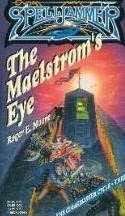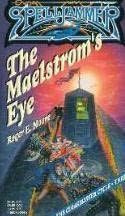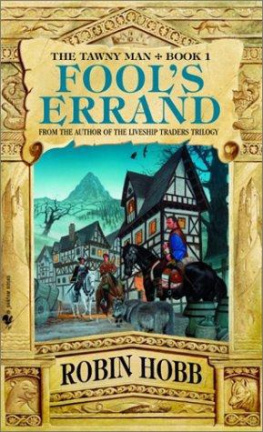Roger Moore - Errand of Mercy
Here you can read online Roger Moore - Errand of Mercy full text of the book (entire story) in english for free. Download pdf and epub, get meaning, cover and reviews about this ebook. genre: Romance novel. Description of the work, (preface) as well as reviews are available. Best literature library LitArk.com created for fans of good reading and offers a wide selection of genres:
Romance novel
Science fiction
Adventure
Detective
Science
History
Home and family
Prose
Art
Politics
Computer
Non-fiction
Religion
Business
Children
Humor
Choose a favorite category and find really read worthwhile books. Enjoy immersion in the world of imagination, feel the emotions of the characters or learn something new for yourself, make an fascinating discovery.

- Book:Errand of Mercy
- Author:
- Genre:
- Rating:3 / 5
- Favourites:Add to favourites
- Your mark:
- 60
- 1
- 2
- 3
- 4
- 5
Errand of Mercy: summary, description and annotation
We offer to read an annotation, description, summary or preface (depends on what the author of the book "Errand of Mercy" wrote himself). If you haven't found the necessary information about the book — write in the comments, we will try to find it.
Errand of Mercy — read online for free the complete book (whole text) full work
Below is the text of the book, divided by pages. System saving the place of the last page read, allows you to conveniently read the book "Errand of Mercy" online for free, without having to search again every time where you left off. Put a bookmark, and you can go to the page where you finished reading at any time.
Font size:
Interval:
Bookmark:
Roger Moore
Errand of Mercy
Prologue
"Open in the name of the past and present lords of Waterdeep"
The warrior watched as the flowing veins of magic in the gate dimmed and faded in reaction to his words. A narrow ripple of yellow light rolled out swiftly from the center of the gate like a wavelet from a stone dropped into a pond. The center of the expanding circle was purest black. In a moment, the entire gate was darker than a bottomless pit, framed by two gigantic ivory tusks that glowed with a pale light.
The old warrior turned to look once at his fellows, four men and a woman who stared at the open gate in awe. He shrugged, then unslung his shield from his back and ran his left arm through the straps. Hefting his massive warhammer in his right hand, he studied the weapon silently, turned to the gate again, and stepped forward. He inhaled and instinctively held his breath, walking into the blackness in the center of the gate. Like that, he was gone.
His disappearance was so sudden that the youngest of the group, hardly more than a boy, gasped aloud. It seemed as if the gate had swallowed the warrior in silver armor alive. A few moments later, another warrior, a young man in armor made of golden scales, stepped forward. He held his own warhammer forward, ready to punch out at any foe or obstacle. Then he, too, was gone.
The four who were left glanced uneasily at each other. By unspoken agreement, the knight with the bright two-handed sword went next, followed by the gray-haired man in leathers, carrying his fighting staff out before him. When the older man had vanished, only the woman in robes and the youth remained. They talked quietly, then the young man pulled a knife from his boot, steeled himself, and went through the gate, too.
The woman watched him go. She sighed, then lifted her chin and spoke.
"Close in the name of the past and present lords of Waterdeep"
A circular rainbow of light bloomed from the center of the blackness in the gate. In moments, the gate was as it had been only minutes before, veins of visible magic flowing across its surface. The woman swiftly left the area, descending the flight of stone steps that led away from the gate, sitting atop a small pyramid inside a huge, battle-stained room far underground.
At the only door leading out of the great chamber, the robed woman turned. Raising her arms, fingers spread, she took a deep breath and called out the words to the most powerful spell she knew. Her voice grew louder, and the ends of her long hair rose and separated, charging with electricity. At the crescendo of her spell, she shouted a single word and thrust her hands forward, pointing both her index fingers at the gate.
She forgot to blink. The lightning bolt was stamped on her retinas for an hour afterward, and she was half-deaf from the thunderclap as the crooked bolt, bright as the sun, sprang from her fingers to the gate-and blew it into a million pieces.
Chapter One
He began as nobody, one brown squalling infant among a hundred born that day among his conquered people, the Mar. He was sickly and his mother did not expect him to live long. It was months before his father finally named him Ikavi Garkim. He hoped the boy would make a good carpenter if he survived to his eighth year. His family was tarok, the lowest class of the Mar, and struggled for food and money that the bahrana, the few middle-class Mar, took for granted.
Ikavi survived many illnesses in his family's one-room adobe home, lost in a sprawling slum that spilled around the gray walls of Eldrinpar, the seacoast capital of Doegan. His stubborn survival was not the only thing that made him different, though. His peculiarity became clear as soon as he could speak. He acted before orders were given him; he mouthed secret thoughts without knowing their meaning.
At first everyone thought this was marvelous, but in the end no one could tolerate it. No thought was safe near him. Relatives and friends ceased to visit the tiny home. Ikavi's parents punished him for speaking their thoughts aloud; later, to gain privacy, they simply sent him away, or else filled their heads with mindless chants, songs, or prayers when he was near. Ikavi frowned when they did this, which unnerved them.
Other children found Ikavi's mind-reading annoying. They threw stones at him until he ran back to his home or hid. Ikavi usually played by himself in the hot, dusty streets of his neighborhood: a packed maze of low, baked-mud homes, filled with the cries of children and the shouts of adults. He stole food to survive, like every other tarok child, but his style of theft grew from his mind-reading abilities. As he became better at understanding the thoughts of those around him, he simply picked up things-a piece of fruit, a silver coin, a top, a folding knife-when no one was paying attention. He learned carpentry by reading his father's thoughts, and he helped his sire carve toys and idols or repair broken furniture on the dusty steps of their home.
Then on a hot summer afternoon a tanned, drunken soldier, one of the sharp-nosed conquerors called the Ffolk, staggered down Ikavi's home street after taking a wrong turn on the way back to his barracks. The poverty-stricken Mar fled before him, fearing the soldier would cut them down or otherwise abuse them. He could do this with impunity. No Mar had the rights of a Ffolk.
Ikavi's father was away at the market selling items they had carved the previous day. Ikavi himself sat on the steps of his home, a folding knife and a wooden figurine in his dirty hands. The soldier saw him, pointed, and shouted an order. Out of habit, Ikavi peered into the man's mind, intrigued by unfamiliar words and images. The man spoke and thought in the harsh consonants of the invaders' Thorass, not the liquid Mar an tongue Ikavi knew.
Perhaps the soldier sensed this psychic intrusion and resented it, or perhaps Ikavi did not obey his orders quickly enough. The man drew his sword and lunged at the child. Ikavi's mother saw and rushed between them to block the blow. The angry soldier shoved the shrieking woman aside and turned to the disrespectful boy.
But the boy was already upon him, enraged that a soldier would lay hands on his mother. With the speed of a leopard, Ikavi stabbed the soldier in the heart before the drunken man could dodge the blow.
Ikavi, no one's fool, would have gotten away if the dying soldier's comrades had not appeared just at that moment, looking for their inebriated companion. With little trouble, they chased and caught the Mar boy.
One soldier had an axe. In those days, it was the practice to immediately execute tarok troublemakers of any age without trial. The enraged soldiers forced Ikavi against the steps of his own home and bent down his head. His family looked on from a distance and screamed.
"Stop."
The word, spoken in Thorass, came out of thin air. Startled, the soldier lifting the axe drew back. The others looked up from their struggle to hold Ikavi down, searching the street for the speaker.
"Bring the boy alive to the palace, now," continued the voice. It was neither soft nor-loud. It held neither emotion nor humanity. It reached into every hidden place up and down the street. The soldiers froze like frightened rabbits. They knew the voice well. The man with the axe dropped the weapon and hid his hands.
Wrestling the youth to his feet, three soldiers finally forced Ikavi to go with them, arms pinned behind his back. The last two soldiers picked up the axe and the body and sword of their comrade, then marched off to the palace behind the others.
Ikavi's hysterical family bewailed their loss. They knew Ikavi would die at the hands of the hated Ffolk. They mouthed empty words of revenge and fell asleep in their tears and sorrow.
Font size:
Interval:
Bookmark:
Similar books «Errand of Mercy»
Look at similar books to Errand of Mercy. We have selected literature similar in name and meaning in the hope of providing readers with more options to find new, interesting, not yet read works.
Discussion, reviews of the book Errand of Mercy and just readers' own opinions. Leave your comments, write what you think about the work, its meaning or the main characters. Specify what exactly you liked and what you didn't like, and why you think so.









